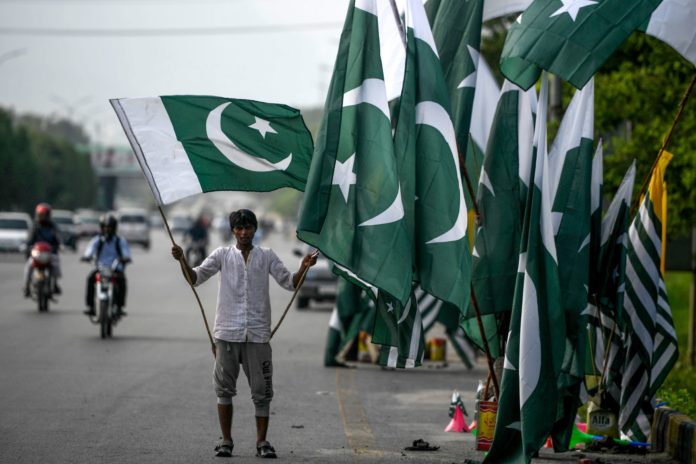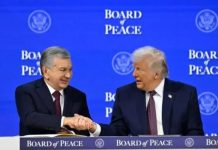
By Amjad Mahmood
Every tribe, ethnicity, empire, dynasty, and nation for ages has held some form of authority, power, and influence during different segments of recorded history. This instinct stemmed from basic human traits to fight, resist, survive on its own terms, adapt somewhere and forcing own will whenever possible or permitted. Each seat of power in its own way had used strengths provided by the tangible or intangible source available to each authority.
This source of strength helped create the requisite narrative and physical strength to ensure the longevity of the rule. Be it Incas, Aztecs, Romans, Greek, Egyptians, Qings, Ottomans, Mughals or British, all drew strengths from the society in a different perspective e.g religion, social equality, money, knowledge, military etc.
Pakistan, a state formed on religious fervour and founded against all odds has had an exemplary and glorious beginning which unfortunately it could not sustain. During its seven plus decades of existence, it has experienced unparalleled glimpses of brilliance in all aspects simultaneously with exemplary disasters, all by one nation. Pakistan commenced its innings 75 years ago with a bang. A bang that was a result of almost two million people losing their lives due to one of the largest mass migrations in human history coupled with violence seldom experienced before. The hastily and mal-intended drawing of borders by the British, widening religious gap and social inequality among two major communities while bringing the wrath mostly on Pakistan, somewhere down the conscience of the first batch of citizens, these factors acted as a catalyst to perform well, probably as a reply to her seven times larger neighbour, India. The survival instinct triggered and was to set the tone for the coming years of early Pakistan.
While Pakistan was progressing well on many accounts in the early decades, it had already failed in a few domains. The collapse of the political landscape, constitutional disorientation, a continuation of the feudal system, acceptance of dynastic rule, ethnic inequality and military interventions had created plaintive crevices that were to impact future decades of the country. If analyzed intimately, probably mediocrity in leadership will figure out the most glaring slide down. Moreover, the Iranian revolution and the Soviet invasion of Afghanistan, both in the late 70s will be termed as incidents that changed the character of the region in general and Pakistan in specific. Extra-regional and regional players barbarically handed out their cards for gaining influence by using Pakistan as a battleground. The two conflicts, one in the religious domain and the other in kinetic are still haunting Pakistan with no end visible. To add complexity to the milieu engulfing Pakistan, achieving nuclear capability was the ingredient that tempted the world further to paint Pakistan on their radar. And still, we find Pakistan, surviving and is known for its resilience. No wonder, this all is Pakistan, a mystery in its own way.
Pakistan has, is and is likely to remain in news for foreseeable future. This is partly the by-product of geography, as it continues to define world history too. Geography made the security state notion appear on Pakistan’s national scene very early after independence and continues to remain high on its list. Pakistan remains hostage to its geography and thus being played on by world powers.
But now comes the real mystery, Pakistan has survived political fiascos, military takeovers, wars, incursion, insurgencies, 5th generation warfare, natural disasters, world pressures coupled with economic failures, de-stabilizing and imploding voices, diplomatic cutoffs and internal strife. Still, Pakistan is growing and maintaining relevance even today. Though this relevance has come at a heavy price.
A country which refuses to be ignored by world powers, which refuses to bow down completely, which refuses not to show defiance in whatever capacity it can muster, which refuses to take dictation in full, which refuses to accept domination by unfriendly neighbours, which refuses to implode, which refuses to adhere to rules of international deep state games. How is this possible for a relative minnow to achieve and why would the world tolerate Pakistan?
The answer boils down to two tricky and strange aspects, unpredictability and non-cohesion. Commencing from 1947, Pakistan’s independence in itself was an unpredictable event. While Pakistan can hold three times larger enemy at the border, strike down five planes in a few seconds, achieve nuclear status, sunk or detect submarines, strike in broad daylight to shoot down enemy fighters and survive international wins in sports from unimaginable positions, it can easily produce disaster from apparently a vantage point. Unpredictability is in Pakistan’s DNA and culture, though by any international measure the trait cannot be listed as positive, it surely keeps enemies guessing. This single factor keeps all at an arm’s length. Never sure of our response, the opposing party needs to work out multiple contingencies and still, few cannot be provided with safe and favourable results. Probably, the world sees Pakistan as a savvy, unruly, teenager with a religious mindset, reasonably high intelligence, capacity and capability to adapt or respond, emotionally erratic and moreover handling a grenade (read nukes) at all times.
On the other hand, Pakistani people view themselves as gladiators in shining armour, celebrated knights, saviour of faith, natural leaders of the Islamic world and having roles in widely accepted prophecies. This is a strange milieu by worldly standards and does not reflect a rosy picture but there probably is not a workable solution available. The world will have to bear Pakistan, bitterly though….and Pakistan is proud of it. It smiles and shines and treads the same path it desires to adopt. Pakistan has found its strength in this intangible factor and has mastered the art pretty well.
The second aspect of non-cohesion, a serious negative for any nation has somehow played well for Pakistan throughout its rocky seventy years of history. From independence to constitution framing, from religious perspectives to liberalism, from political disasters to military takeovers, from separatists to patriots, from sects and ethnic issues to unified voices, from unethical to moral high grounds, Pakistan is a mosaic of divisions.
A puzzle with so many pieces having no absolute power broker (though few view military to be the one), no singularity of thought, no agreed-upon single leader and numerous narratives floating all around. This confusing spectrum implies that no single narrative, force, plan, or thought can impact the state as a whole. While cohesiveness in society may provide higher percentage chances of getting impacted by mal-intended foreign or internal narratives, a non-cohesive society reduces the chances of collective sway through a single effort.
Even during periods of military rule, the perceived power centre was never in absolute control and needed crutches from differing quarters of society. Many people may disagree with the idea under discussion, however, the two uncanny strengths as defined do exist in reality. To which extent they have actually impacted Pakistan’s journey can be questioned though.
Pakistan is a country which surfaced on the global scene in an unexpected, unwarranted and undesirable environment and has survived the same. While the world continues to change with new priorities, new friends, new foes, new interests and new narratives, Pakistan braves the changes both favourable and adverse to it. For Pakistan, 75 is just a number and numbers do not limit themselves…..Pakistan is here to stay, Insha-Allaah
Amjad Mahmood is an independent analyst based in Islamabad. He holds Master’s Degree from National Defence University in Strategic Studies. His other interests are flying and music. He can be reached at amjad-aviator@hotmail.com





